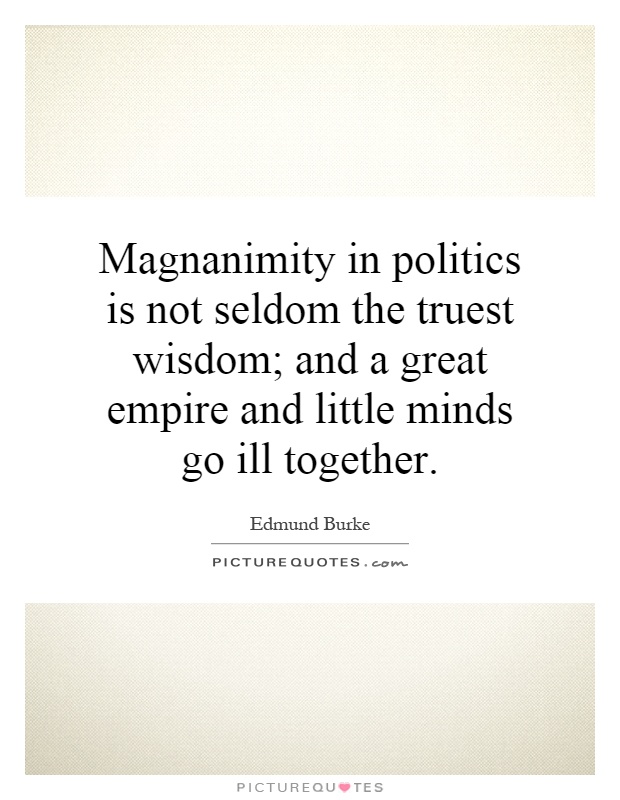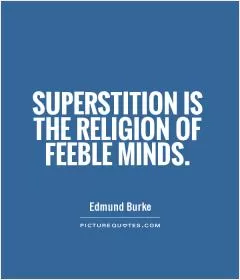Magnanimity in politics is not seldom the truest wisdom; and a great empire and little minds go ill together

Magnanimity in politics is not seldom the truest wisdom; and a great empire and little minds go ill together
Edmund Burke, an Irish statesman, philosopher, and political theorist, is often regarded as one of the founding fathers of modern conservatism. His views on politics, governance, and society have had a lasting impact on political thought and continue to be studied and debated to this day. One of Burke's most famous quotes, "Magnanimity in politics is not seldom the truest wisdom; and a great empire and little minds go ill together," encapsulates his belief in the importance of statesmanship, virtue, and moral leadership in politics.Burke believed that true wisdom in politics lies in magnanimity, or the quality of being generous and forgiving. He argued that political leaders should act with nobility, integrity, and a sense of moral duty, rather than being driven by self-interest or narrow-mindedness. In Burke's view, a great empire requires leaders who possess the virtue of magnanimity, as they must make decisions that affect the lives of many people and have far-reaching consequences. Leaders who lack this virtue, who are petty, selfish, or short-sighted, are ill-suited to govern a great empire and are likely to lead it to ruin.
Burke's emphasis on magnanimity in politics reflects his belief in the importance of moral character and virtue in leadership. He believed that political leaders should act with integrity, honesty, and a sense of duty to the common good, rather than being swayed by personal gain or ambition. Burke's concept of magnanimity also encompasses the idea of forgiveness and reconciliation, as he believed that political leaders should be willing to forgive past wrongs and work towards building a better future for all.












 Friendship Quotes
Friendship Quotes Love Quotes
Love Quotes Life Quotes
Life Quotes Funny Quotes
Funny Quotes Motivational Quotes
Motivational Quotes Inspirational Quotes
Inspirational Quotes